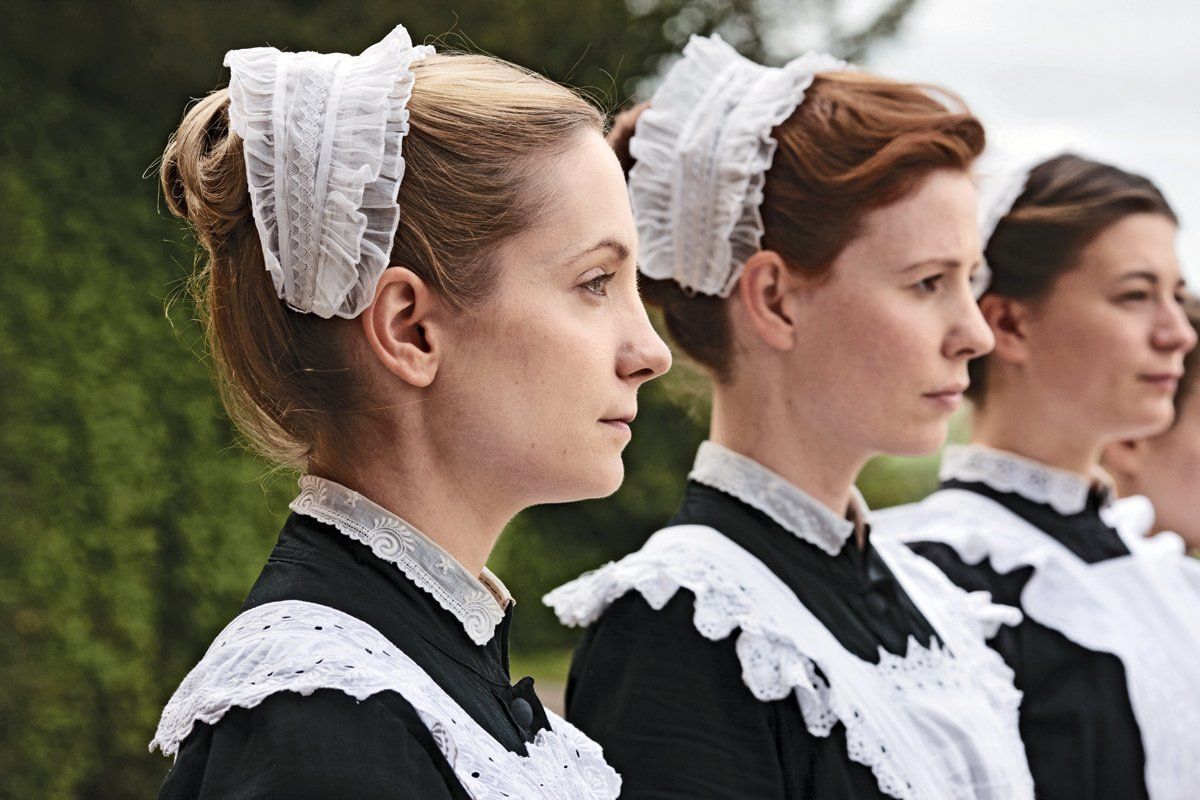
There are many things wrong with the Republic in 2012, but when historians come to write its chronicle they will notice that the country was gripped by the clammy delirium of nostalgia. Tea Partiers ache for what they imagine to have been a tricorny country, all innocent of the Monster Government. Politicians and radio ranters sell the credulous on an American paradise before "socialism," in the wicked shape of Social Security and Medicare, ever came to be. And folks who might have better ways to pass their time have been falling like grouse to the gun before the mighty edifice of Downton Abbey. Deprived of a wallow in the dry-martini and bullet-bra world of Mad Men? Not to worry, Downton serves up a steaming, silvered tureen of snobbery. It's a servile soap opera that an American public desperate for something, anything, to take its mind off the perplexities of the present seems only too happy to down in great, grateful gulps.
Yes, I know it's perfect in its way. Nothing beats British television drama for servicing the instincts of cultural necrophilia. So the series is fabulously frocked, and acted, and overacted, and hyper-overacted by all the Usual Suspects in keeping with their allotted roles. There's Carson, the beetle-browed butler. (My favorite in the endless parade of butlerian clichés was Rabbits, the butler in H. G. Wells's hymn of hate to the lordly house, Tono-Bungay.) Maggie Smith does her tungsten-corseted, eye-rolling, nostril-curling, glottal-gurgle as only she can—half Lady Bracknell, half Queen Mary (the unfailingly erect consort of King George V). Julian Fellowes has gotten this stuff down pat since writing Gosford Park, though all the main plot lines were anticipated a long time ago by Upstairs, Downstairs.
But this unassuageable American craving for the British country house is bound to get on my nerves, having grown up in the 1950s and '60s with a Jacobinical rage against the moth-eaten haughtiness of the toffs. They still knew how to put One in One's Place. I'd barely crossed the threshold of one such establishment before its Carson had delicately knocked at the door of my room wondering when he could collect my trousers. He had not asked of course but assumed I'd want them Properly Pressed. I still remember the look on his face as he carried them off between thumb and forefinger as if removing a mysterious object in an advanced form of contaminated decay. Before "retiring," I was asked by another servant whether I would prefer to be woken with tea or coffee. "Ah," I said, "how nice. Tea if that's all right." "Milk or lemon?" he pressed on. "Oh, gosh, thanks, milk." "The Jersey or the Guernsey herd, sir?"
In the current series, historical reality is supposed to bite at Downton in the form of the Great War. The abbey's conversion into convalescent quarters did indeed happen in some of the statelies. But if Fellowes were really interested in the true drama attending the port and partridge classes—more accurately and brilliantly related in Evelyn Waugh's Brideshead Revisited and Isabel Colegate's wonderful The Shooting Party—the story on our TV would be quite different. Instead of being an occasional suffragette, Sibyl would have turned into a full-on militant, carving, while incarcerated in prison, a "V" for "votes" on her breast with a piece of broken glass. Lord Robert, whose income from land and rents would have collapsed with the long agricultural depression, would be unable to service his mortgage and, subject to the estate duties imposed to pay for old-age pensions, would have to sell the place to a wheat baron from Alberta. And Matthew would be one of the 750,000 dead.
Too much of a downer for Downton? Probably. Sorry, but history's meant to be a bummer, not a stroll down memory lane. Done right, it delivers the tonic of tragedy, not the bromide of romance. But then that wouldn't get the high ratings, would it?
Uncommon Knowledge
Newsweek is committed to challenging conventional wisdom and finding connections in the search for common ground.
Newsweek is committed to challenging conventional wisdom and finding connections in the search for common ground.
About the writer
To read how Newsweek uses AI as a newsroom tool, Click here.





